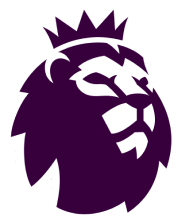When he looks back through his glittering career, one match in particular sticks out above the rest for Premier League Hall of Fame inductee Ian Wright.
“It was with my dear friend David Rocastle,” he recalled.
"When I got to Arsenal our first league game was away to Southampton and I scored a hat-trick and David scored the other goal, it's the best football match I've ever played in.”
That was in September 1991, the early part of a season when a childhood dream for Wright and Rocastle became reality - the "Brockley Boys" completing their journey from growing up together on the Honor Oak Estate, south-east London, to playing alongside each other professionally.
"I don’t think of the accolades or the trophies I’ve won or the England caps - which mean the world to me. All I think about is the fact that I played with him for a year as a professional,” Wright added on BBC’s Desert Island Discs.
The story of Wrighty and Rocky
Wrighty & Rocky. ✊
— Premier League (@premierleague) October 26, 2024
The story of two friends, born four miles apart, whose influence stretched way beyond the football pitch.#NoRoomForRacism | @IanWright0 pic.twitter.com/OvPDsRwb1t
The unique story of Rocky and Wrighty, as they were nicknamed, is an emotional one about two friends born four miles apart, their unbreakable bond and contrasting journeys to the top which made them inspirations both as individuals and a duo.
Sadly it contains tragedy too after Rocastle’s life was cut short when he passed away aged just 33 in 2001.
Now a beloved national icon determined to use his platform for good, one of Wright’s missions is to ensure the legacy of Rocastle, the man who taught him to never give up and what it meant to play for Arsenal, lives on.
Journeys to the top
Their time together as Arsenal team-mates lasted just one season in 1991/92, but reaching that point took years.
Lewisham-born Rocastle was five and Woolwich-born Wright nine when they first met.
Rocastle was the prodigy of the pair and his rapid ascent made him a hero, not just to those he grew up with on the estate but well beyond that too.
He joined Arsenal aged 15, made his first-team debut when he was 18 and had already won the first of his two First Division titles in 1989 and made his England senior debut by the age of 22.

Meanwhile, Wright’s professional career was only in its infancy when he was that age. His rise took far longer, but his persistence and alternative journey from Sunday football to stardom is an equally inspiring example of what is possible.
Initially, Wright suffered a string of belief-denting rejections, including from Millwall and Brighton & Hove Albion.
Through all the knock-backs Rocastle remained one of Wright’s biggest cheerleaders.
He told Wright it was the clubs overlooking him who were making a mistake and he should already be playing in Division One, during their pep talks on Honor Oak bridge when Rocastle was on his way to Arsenal training.
Eventually Wright’s luck changed in 1985.
Still primarily a Sunday League player, Wright earned a trial at Crystal Palace on an initial three-month contract which turned into a long-term deal.
Shortly before turning 22, Wright could finally call himself a professional. Rocastle was as proud of him as anyone.
After scoring 118 goals in 277 appearances for Palace, including two in the 1990 FA Cup final against Manchester United, and firing the Eagles to Second Division promotion and third in Division One, Wright earned his dream £2.5million move to team up with Rocastle at Arsenal.
“It’s a fairytale isn’t it?” then Arsenal manager George Graham said.
Their off-pitch chemistry was matched on it as Wright won the 1991/92 First Division Golden Boot with 29 goals - including five for Palace - and Rocastle enjoyed a revival in central midfield following two injury-hit campaigns.

But the reunion lasted less than 12 months.
Rocastle was surprisingly sold to Leeds in 1992, a decision that left both he and Wright in tears, before permanent spells at Manchester City, Chelsea, Malaysian side Sabah prior to his retirement in 2000.
Then tragedy struck. After being diagnosed with Non-Hodgkin lymphoma in October 2000, Rocastle passed away on 31 March 2001.
Rocastle's legacy
Rocastle has always been central in Wright’s thoughts since, and keeping his name alive is a priority.
That was something he reiterated during last year’s unveiling of the "Rocky & Wrighty" arena, a small-sided pitch built in their honour at their former primary school Turnham Academy, overlooked by the estate where they grew up and funded by the Premier League, The FA, the Government’s Football Foundation, and EA SPORTS.
Another occasion when Wright spoke so poignantly about Rocastle came in a heartfelt letter he penned, marking the 20th anniversary of his untimely death in 2021.
“We weren’t just friends, we were brothers,” Wright said.
“Think about how many times we acted out being in the same team one day. Wright to Rocastle. Rocastle back to Wright. Two Brockley boys.”
And both huge inspirations to so many.


